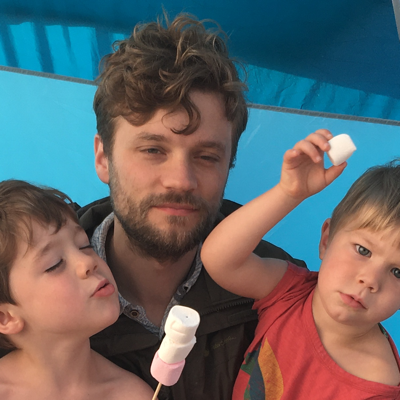 CV
CV
 CV
CVName
- Simon Engledew
Nationality
- British
Location
- Witney, Oxfordshire, UK
E-mail
- simon.engledew@gmail.com
GitHub
- simon-engledew
Summary
- 19 years industry experience, mostly at start-ups
- gocmdpev
- Command-line port of a Postgres EXPLAIN explainer with Python 3 bindings
- rewritehtml
- Go middleware to rewrite html responses
- sshim
- Python SSH testing library
- mock-ssh-server
- Run Starlark scripts over SSH
- python-radius
- Pure Python radius implementation
- python-er
- Regular expression fuzzing library
- docker-web
- Connect a browser to a running Docker container
…and more
Open Source
Public Speaking
- Load Testing for Four Million Users (Slides) @ Oxford Geek Night #38
Employment History
GitHub October 2020 - Present
Remote
~1,600
[March 2023]
Staff Engineer, Code Scanning.
[October 2020]
Senior Engineer, Code Scanning.
- Golang
- Ruby on Rails
- MySQL
- Vitess
- Rust
Osirium Ltd July 2016 - October 2020
Remote
~50
[June 2018]
Lead engineer for PPA, Osirium’s container-based automation platform. A greenfield project written in Golang and TypeScript, built using LinuxKit.
- Drone
- Docker
- LinuxKit
- React
- Golang
- TypeScript
- Make
- Github Actions
[July 2016]
Team Lead in a growing engineering team building PxM Platform, a linux–based task automation and privileged user management appliance for VMware written in Python, C♯ and Ruby on Rails.
- Python3/asyncio
- Jenkins
- Docker
- Debian Packaging
- Load Testing
- Performance Optimisation
Job Done Tick Limited November 2015 - May 2019
Oxford
1
Director of Job Done Tick; a little consulting outfit that has written networking software, the first version of the data processing pipeline & web backend for a popular Oxford dictionary and two mobile apps.
- C♯
- Python
- React
- Node
- Webpack
- Browserify
- Gulp
- Meteor
- Cordova
- GraphDB
- SparQL
- Flask
- Python
- AWS
- Cloud Formation
- Docker
- Postgres
- Vuforia
- Unity
Oxford University Press January 2014 - November 2015
Oxford
~6,000
Lead Developer in a small team; hired to complete and launch a ground up rewrite of mymaths.co.uk that was started by a contractor in 2012.
The MyMaths website teaches over four million students world-wide.
- Ruby on Rails
- CoffeeScript
- RSpec
- PhantomJS
- AWS
- Cloud Formation
- Jenkins
- jQuery
- MsSQL
- MySQL
- CentOS
- Sublime Text 3
- Vi
- JMeter
- Tsung
Osirium Ltd October 2010 - December 2013
Theale
~10
Lead Engineer in a three person team developing PxM Platform, a linux–based task automation and privileged user management appliance for VMware written in Python, C♯ and Ruby on Rails.
PxM Platform is live in several multinational corporations and is used daily by teams of sys-admins to connect to and automate mission-critical devices in a secure, accountable way.
- Start-up
- Python
- Nosetests
- C♯
- Ruby on Rails
- Twisted
- Web Scraping
- Ubuntu
- Postgres
- Security
- Automation
- Forward Proxies
- Bash Scripting
- Jenkins
- SysOps
- ESXi
- Vagrant
- Windows
- Screen Recording
- Sublime Text 2
- Vi
- Reverse Engineering
- RDP
- TDS
- HTTP
- SSH
- LDAPS
IST Ltd November 2009 - October 2010
Reading
~20
Solo developer on appvox.com, an app authoring tool that generated customised iPhone applications via a supporting website designed for non-technical users.
Contracted on bespoke iPhone application development projects.
- Ruby on Rails
- Objective-C
- JavaScript
- MySQL
- SysOps
- Ubuntu
- XCode
- Textmate
- Design
- UX
- RSS
Optimor April 2008 - November 2009
Oxford
~6
Lead Web Developer for a small team at billmonitor.com, a probabilistic price comparison engine that crawls & analyses your online bills, based on mathematics research from senior Oxford academics.
- Start-up
- Ruby on Rails
- Python
- Twisted
- Web Scraping
- MySQL
- JavaScript
- MongoDB
- AWS
- Ubuntu
- Information Architecture
- Textmate
John Speed LTD April 2008 - February 2017
Winchester
2
Technical Co-Founder on a jolly venture building Pelorus - business change software that used state propagation to track the health of a project.
- Ruby on Rails
- Sinatra
- Linode
Monkwood Technologies July 2005 - April 2008
Reading
~4
Engineer in the two-person graduate development team that built CellQ, a mobile phone based virtual queuing system for theme parks. CellQ went live at a park in northern England in July 2007, and during peak seasons served more than 5,000 users a month.
- Start-up
- Java
- JSP
- .Net Compact
- Struts
- MySQL
- JavaScript
- MooTools
- Design
- UX
- Web Design
- SysOps
- Linux
- Eclipse
- Real-Time SMS
Southampton University Preview Day System 2004
Commissioned to create a system in PHP that registered preview day preferences and the advanced booking of events. The system went live in 2004, serving over a thousand university visitors. The system was run autonomously for another two years.
- PHP
- Web Design
- Windows
- MsSQL
Education
Southampton University October 2002 - July 2005
Graduated with an Upper Second (2i) BSc in Computer Science.
Third year dissertation: “Accessible Secure Communication” Received 1st
Created a fully functional networked Instant Messenger system in C♯ that uses Asymmetric and Symmetric cryptography to secure, sign and verify messages.